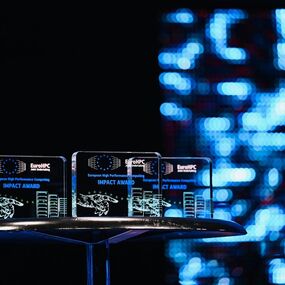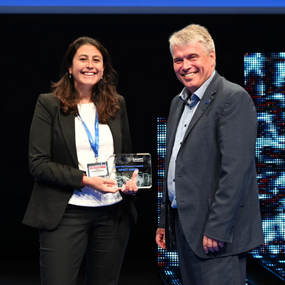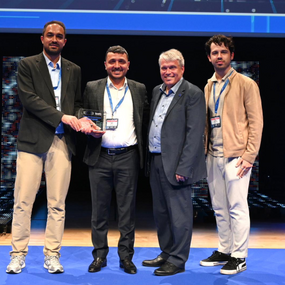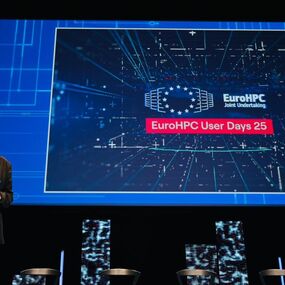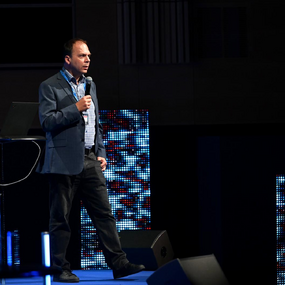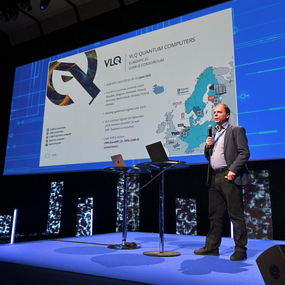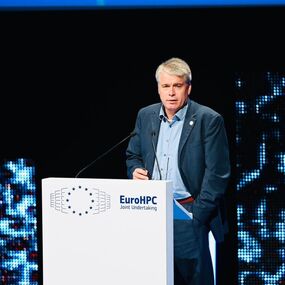At the EuroHPC User Days 2025 conference in Copenhagen, Denmark, participants explored the latest opportunities for accessing the supercomputers of the EuroHPC Joint Undertaking (EuroHPC JU). The programme included updates on 13 existing AI Factories and forthcoming supercomputers optimised for artificial intelligence. The conference’s plenary session also featured recommendations on how to submit a successful application for computational resources under EuroHPC JU calls.
Karolina supercomputer users also achieved great success.
- Dr Valeria Ospina-Bohorquez (Focused Energy, Germany) was awarded the title of Best EuroHPC User for her research in nuclear fusion, carried out on Karolina and the Slovenian supercomputer VEGA.
- Özgür Uğur (NewMind AI, Turkey) received the Best Paper 2025 award for developing AI tools for the legal sector, with a key part of his work relying on Karolina’s GPU-accelerated supercomputing capabilities.
Both awardees conducted their projects through EuroHPC JU calls on Karolina, highlighting the quality and significance of Czech infrastructure in the European context. For projects submitted via EuroHPC JU calls, 35% of Karolina’s capacity is reserved. More information on the awarded users is available on the EuroHPC JU website.
During the conference, the European portal supporting supercomputing applications was also launched. Developed as part of the EPICURE project, the portal serves as a single point of contact where European supercomputer users can find information on EuroHPC JU systems, their architectures, access opportunities, and available support services. More information about the portal can be found here, and the portal itself is available here.
Branislav Jansík from IT4Innovations presented, during the conference’s closing plenary session on quantum computing, together with representatives from the Poznan Supercomputing and Networking Center, the first two inaugurated quantum computers – PIAST-Q and the Czech VLQ.
Presentations from the conference plenary sessions, including details on the upcoming AI-optimised successor to the LUMI supercomputer, planned for launch at the beginning of 2027, are available here.

